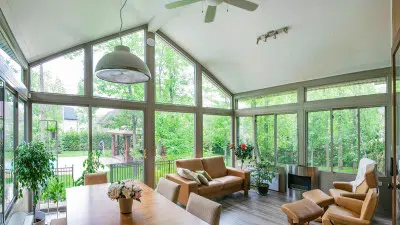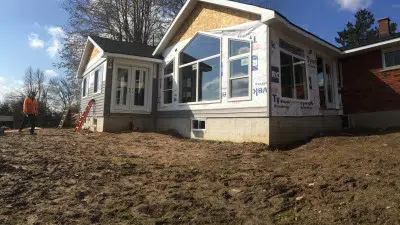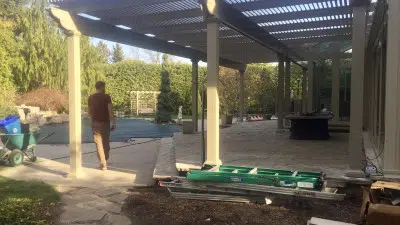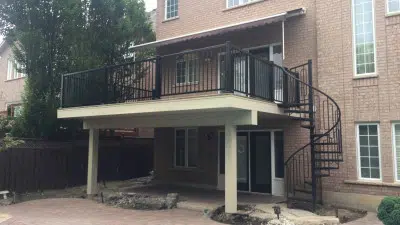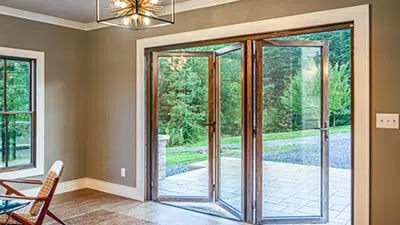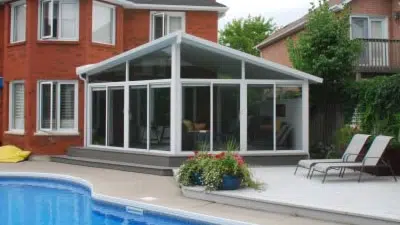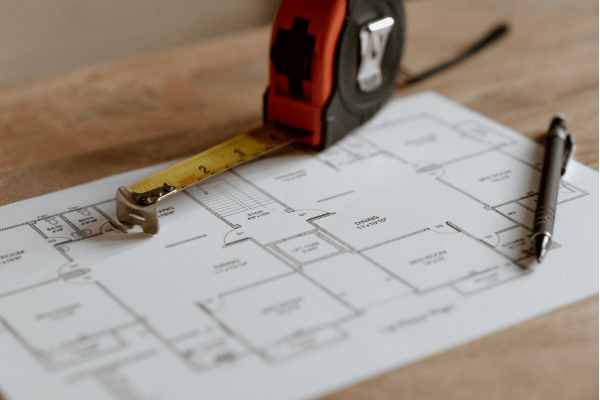Additions are easy to build, but it takes good planning to get it right. Whether you want to build a family room, add bedrooms or a home office, or enlarge your kitchen, talk with an experienced renovator before you get too far in your planning. Professional renovators can explain exactly what’s involved and help you to develop a design that meets your needs. They often begin by making a sketch of your property including buildings and landscaping. Or you can make a copy of the survey provided when you bought your home. A larger sketch of the proposed addition for more detailed consideration is also useful.
Make the most of natural light. Marking the position of the sun throughout the day on the sketch will help to determine the best window and door placements. This in turn will influence the positioning of interior walls, closets, fireplaces and entertainment centres, for instance. Your renovator can advise you on the best type of windows to avoid overheating in the summer and prevent fading of furniture fabrics and rugs.
Connect with the outside. Consider what you want to see from inside. You might want a clear view of the children’s play area from a work area, or be able to smell the flowers right outside your window. Place exterior doors intended for regular use close to an established outside traffic path to minimize maintenance, such as snow shoveling. Also think about closet or storage space close to entranceways.
Consider the traffic flow. A well-planned traffic pattern will make the most effective use of your new space. Your renovator will offer sound ideas for connecting new and existing areas in your home, or suggest where best to position the door from your new family room to the deck to minimize space lost to traffic flow. Ideally, traffic flow should not account for more than 5 to 7% of the total area.
Allow plenty of room for furniture. Before finalizing the plans, think about how you will furnish the addition. On your sketch, draw the furniture you intend to use. Will it fit? Add the fireplace, entertainment centre, shelving, cabinets and anything you plan to have build in. Is there still enough room? It’s much easier to enlarge the addition at the planning stage than later.
Build on a solid foundation. The foundation for your addition is important to the overall quality and lasting value of your renovation. A professional renovator will explain the options in detail: e.g. placing the addition on piers sunk into the ground; developing a crawl space; or excavating a full foundation. A simple soil test can provide the necessary information about the condition of your site, such as solid rock below the surface or unstable soil. The new foundation will also need proper exterior drainage to prevent moisture problems.
Determine plumbing, electrical, heating, cooling and ventilation needs. These “invisible” elements can add up to a sizeable part of the work and budget, particularly when kitchens and bathrooms are involved. Your renovator will conduct a thorough inspection to determine what’s required for your addition. and what modifications or upgrades may be needed to your existing systems.
Know the regulations. Municipal zoning bylaws can affect your plans: height restrictions; rear- and side-yard setbacks; percentage of windows to wall area; and even the location of an air-conditioner condensing unit. Your renovator knows what information is required to ensure your addition complies with regulations, and how to get it.
Tie the “look” together inside and out. A successful addition should look as if it was always there! Inside, your renovator may recommend matching or complementary colour, trim and flooring to blend the old and the new. Outside, new siding for the whole house, repainting, the addition of window shutters or landscaping will all help to create a harmonious look.
Ensure access during the work. Your renovator will take a close look at your property to determine if there is enough room for heavy equipment (e.g., backhoe), and what needs to be done outside before work can begin, such as moving a fence or protecting your garden.
Think about energy efficiency. The Office of Energy Efficiency at Natural Resources Canada offers a wide range of helpful information on upgrading the energy efficiency of your home. You can also call 1-800-387-2000 for a Free Publication Order Form.
©Canadian Home Builders Association
